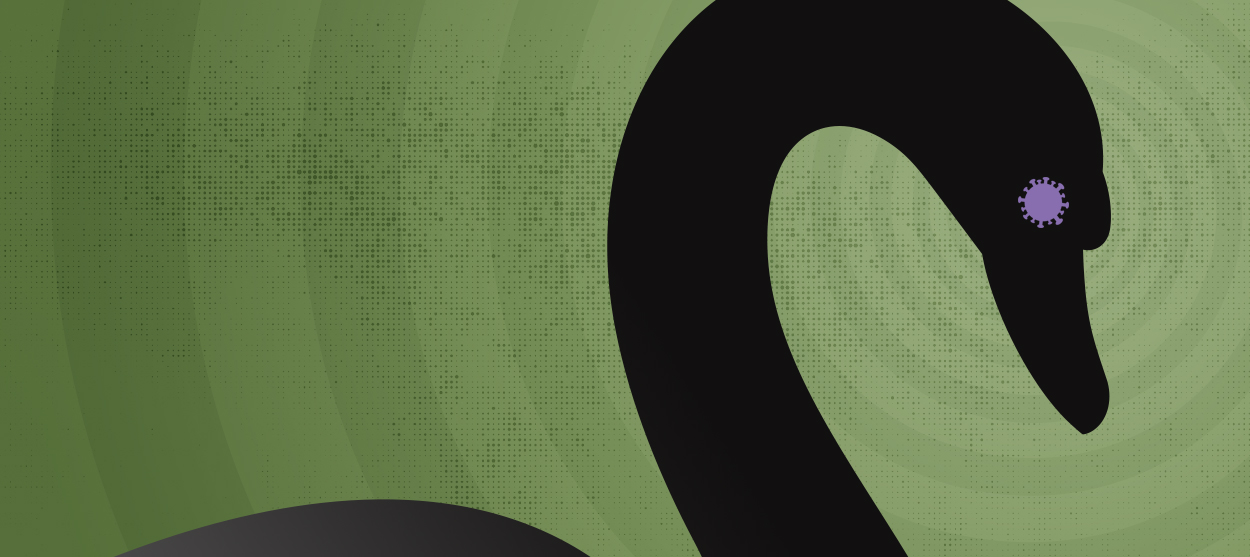Is coronavirus really a black swan event?
The coronavirus, although dangerous and scary, isn't some unpredictable event


A free daily email with the biggest news stories of the day – and the best features from TheWeek.com
You are now subscribed
Your newsletter sign-up was successful
The global spread of the coronavirus is making America more anxious by the day. And those deepening worries are reflected in the gyrating stock market. Both the long economic expansion and 2020 presidential race seem poised on a knife's edge. Politico reports, "Trump faces 'black swan' threat to the economy and reelection." The New Yorker puts it this way: "As Coronavirus Spreads, Stocks Fall Again and the White House Frets About a Black Swan."
But the coronavirus, although dangerous and scary, isn't some unpredictable, "Gosh, who woulda thunk it?" black swan. And employing that powerful metaphor lets governments evade their responsibility to keep us safe and avoid accountability if they fail.
Recall that the phrase "black swan" gained currency a decade ago during the Great Recession and aftermath. It provided a compelling way of thinking about the simultaneous crises in banking and housing. Those economic shocks elevated investor and mathematician Nassim Nicholas Taleb to global celebrity. His best-selling 2007 book about unpredictable events, The Black Swan, seemed eerily prescient of the terrible downturn starting later that year. More than that, it gave investors and academics a conceptual framework for thinking about potential risks that were both highly destructive and low probability.
The Week
Escape your echo chamber. Get the facts behind the news, plus analysis from multiple perspectives.

Sign up for The Week's Free Newsletters
From our morning news briefing to a weekly Good News Newsletter, get the best of The Week delivered directly to your inbox.
From our morning news briefing to a weekly Good News Newsletter, get the best of The Week delivered directly to your inbox.
Taleb's definition of a "black swan" synced perfectly with the global financial crisis: From his 2007 book: "First, it is an outlier, as it lies outside the realm of regular expectations, because nothing in the past can convincingly point to its possibility. Second, it carries an extreme 'impact.' Third, in spite of its outlier status, human nature makes us concoct explanations for its occurrence after the fact, making it explainable and predictable."
Nailed it. First, an imploding banking system and a nationwide decline in housing prices hadn't been seen since the Great Depression. Most experts thought a 21st century recurrence was impossible due to regulations and the structure of modern finance. Even Federal Reserve Chairman Ben Bernanke, a scholar of the Great Depression, initially underestimated the risk. Second, the impact was extremely bad, with a loss of more than $2 trillion in global economic growth. Third, the risks seemed obvious in hindsight: a housing bubble bordering on mania, complicated and novel financial products, and rising interest rates. But in real time, not so much. There's your textbook black swan.
The coronavirus, on the other hand, is a bad fit for Taleb's definition. Yes, it is carrying an extreme impact, in terms of human lives, dislocation, and economic losses. But is the emergence of such a dangerous virus really an unpredictable outlier that suddenly swooped in from outside our "regular expectations?"
If asked, many American could easily cite several dangerous global outbreaks from the past two decades: SARS in 2004, H1N1 in 2009, and the Ebola outbreak in 2015.
A free daily email with the biggest news stories of the day – and the best features from TheWeek.com
And a good chunk of American popular culture this century — World War Z, 28 Days Later, The Walking Dead, The Last of Us — has revolved around the idea of a mysterious, apocalyptic virus — although it may turn you into a zombie after killing you. Our entire society has been soaking in this scenario. Take the 2011 Steven Soderbergh film, Contagion, starring Matt Damon and Gwyneth Paltrow. It grossed $135 million in the domestic box office and is currently one of the hottest films in the Warner Bros. library. The origin of the virus in that film even echoes what many scientists think occurred with the coronavirus. Hollywood wasn't making brainy thrillers about Wall Street mortgage derivatives in the early 2000s.
Moreover, in the years since the 2009 H1N1 flu outbreak, which killed more than 12,000 Americans, there have been numerous studies and public speeches from experts warning about a systemic lack of preparedness. A 2014 Department of Homeland Security study said the U.S. was ill-equipped to handle a pandemic. In 2018, the head of the World Health Organization warned, "A devastating epidemic could start in any country at any time and kill millions of people because we are still not prepared." Also in 2018, Microsoft cofounder Bill Gates said he had raised the issue of a "large and lethal" pandemic with President Trump.
For now, governments around the world, including America's, need to focus on containing the outbreak and finding a vaccine. But when it comes time to review their performance, loose talk about unpredictable black swans shouldn't be tolerated by any of us.
Want more essential commentary and analysis like this delivered straight to your inbox? Sign up for The Week's "Today's best articles" newsletter here.
James Pethokoukis is the DeWitt Wallace Fellow at the American Enterprise Institute where he runs the AEIdeas blog. He has also written for The New York Times, National Review, Commentary, The Weekly Standard, and other places.
